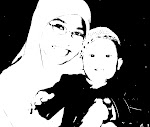
Penat juga menghabiskan nota, rasa nak menulis pula. Sambil bersandar dibucu katil, terpandang sebuah buku yang baru dibeli daripada kak Nur ketika perjumpaan lepas.
Hmmm... Menuju Personaliti Rabbani atau sahabat ada yang menyebutnya sebagai MPR. Kami tak abis bincang lagi.
Aku memilih tajuk, tersingkap muka surat yang satu ini. Menarik dan tersentuh, satu peringatan yang perlu aku beri perhatian.
30. Berusaha Agar Tidak Dikenali
Seorang mukmin yang sejati sentiasa berusaha sedaya upayanya agar sesiapapun tidak menyedari kedudukan dan tarafnya. Apabila ia duduk bersama-sama orang ramai, ia kelihatan sebagaimana orang biasa yang lain juga. Ia tidak akan cuba memperlihatkan kelebihan-kelebihan dan bakatnya untuk mengalih pandangan orang kepadanya, kerana dia tahu, kesan dan tuntutan daripada keadaan sebegitu adalah sangat besar dan berat.
Diantara keinginan nafsu yang paling utama ialah untuk merasa tinggi dan lebih baik daripada orang lain. Lantas apakah ada ketinggian yang lebih besar daripada ingin dikenali ramai dan dipuji orang? Lantaran itulah ia sentiasa cuba untuk menyelinap sahaja di tengah keramaian..
(Termuhasabah sekejap. Astaghfirulloh...astaghfirulloh..)
Pernah pada suatu hari, Umar bin al-Khatab masuk ke dalam masjid lalu mendapati Mu'az bin Jabal sedang menangis di sisi makam Rasulullah saw lalu Umar pun bertanya, "Apakah yang menyebabkan engkau menangis?". Mu'az berkata, "Saya telah mendengar Rasulullah saw bersabda:
"Sesungguhnya yang sedikit daripada riyak itu sudah dianggap syirik. Dan sesungguhnya Allah menyukai orang-orang bertaqwa yang tersembunyi, yang mana apabila mereka tiada, tidak dicari dan apabila mereka hadir, mereka tidak dikenali. Mereka terselamat daripada segala kekabutan yang gelap gelita". (HR TABRANI & AL-HAKIM: Isnadnya sahih).
Seorang mukmin juga bijak menyembunyikan ketaatannya kepada Tuhan iaitu yang bukan menjadi ibadat fardhu.

Ia berusaha semampu mungkin agar orang lain tidak tahu apapun tentangnya. Ia tahu bahawa sesuatu amalan yang jauh daripada pandangan manusia dan hanya dilihat oleh Allah sahaja kemungkinannya untuk mencapai darjat yang IKHLAS adalah lebih besar daripada amalan yang sudah diketahui orang.
(... betul tu..)
Pengetahuan orang tentang sesuatu amalan boleh menyebabkan pahalanya terhapus kerana disebabkan oleh pujian ataupun pandangan orang yang memperlihatkan rasa hormat dan mulia, ataupun kerana mereka mengangkat kedudukannya ke taraf yang terlalu tinggi.
Perkara-perkara ini dan yang seumpamanya boleh menyebabkan nafsu menjadi kembang dan seronok lalu mengambil peranan untuk menjadikan amal perbuatan seseorang itu SENTIASA DILAKUKAN KERANA MANUSIA, supaya dengan itu akan bertambahlah pujian dan perhargaan daripada mereka..
astaghfirullah... semoga kita mendapat iktibar dan peringatan..
Maka begitulah serba sedikit yang diulas penulis buku tersebut iaitu Dr Majdi Al-Hilali terjemahan oleh Nurul Akma bt Mohamed. Harga buku: RM15.00 terbitan Al-Hidayah. Rugi anda tidak membaca siri panduan sebegini.
Hmmm.. betullah... tanpa ilmu kita akan terbiar jahil. Amalkan walaupun sedikit manusia pasti akan maju malah disayangi Allah.
Ingat lagi tak nasyid kumpulan e-man tu??
"Ilmu itu cahaya, jahil itu merbahaya, ingat-ingatlah semua, jadilah insan berguna..."
Kita membaca walaupun sedikit, kan sekarang dah tahu bagaimana nak memandu hidup. Semoga perkongsian sedikit ini dapat mengajak diriku dan sahabat-sahabat sama-sama perbaiki amalan dan niat kita. Dunia dengan ilmu, akhirat dengan ilmu. Selamatlah dirimu. Tak gitu?
Moga ada manfaatnya.
Jom sambung study!..
wslm




No comments:
Post a Comment